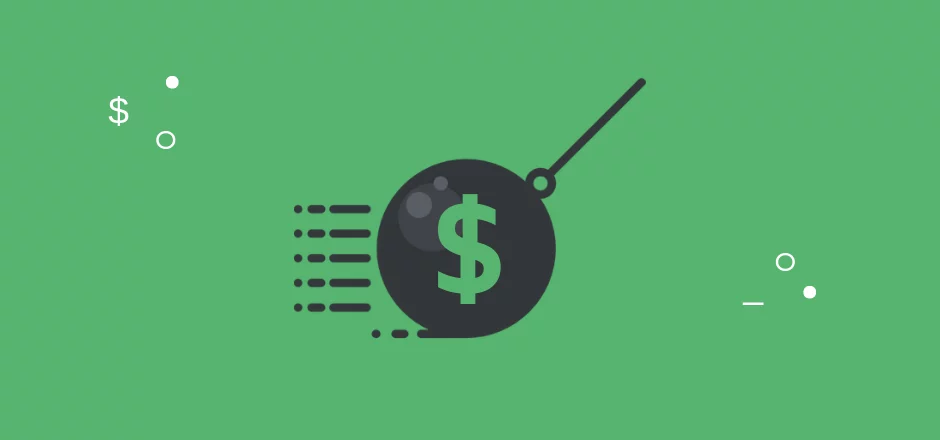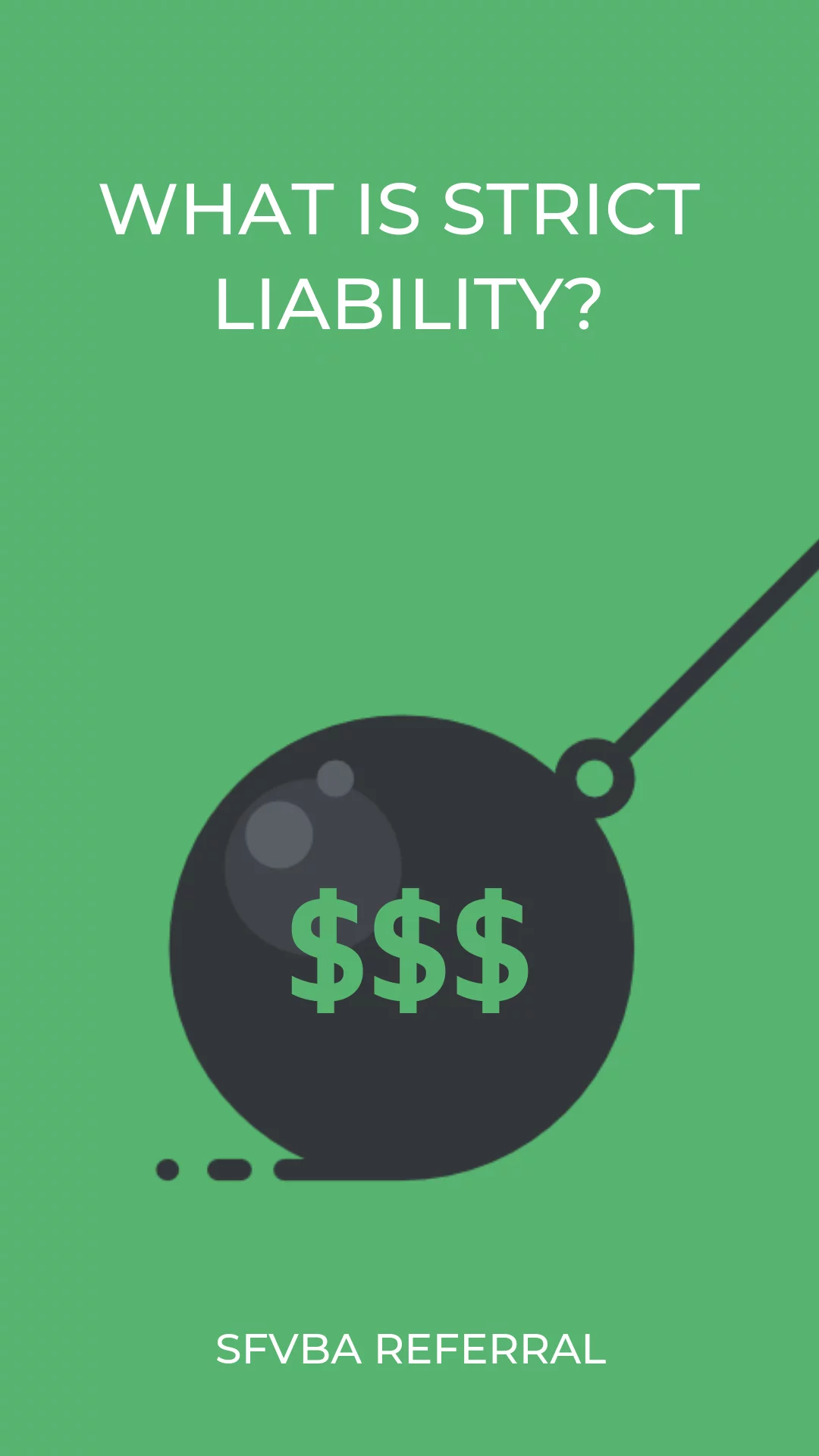What Is Strict Liability?
Personal injury law involves a number of complex components that aren’t always clear, including one topic known as strict liability.
But what is strict liability and is it different in California? In this article, you will learn what strict liability is and discover several examples that illustrate why it’s important to understand it.
What Is Strict Liability?
There are quite a few components to personal injury law, especially when it comes to proving fault or damages. In the case of strict liability, the person making a claim only needs to prove that the defendant was responsible for the incident or damage that occurred. They do not need to prove any specific sort of fault or negligence.
To make matters more confusing, every state has its own definition of strict liability. In some instances, definitions vary even within the state. To help you understand, see this easy-to-digest strict liability guide.
Understanding Strict Liability
Strict liability rules apply to activities that are considered inherently risky or dangerous. A defendant may not have intentionally caused another person harm and they may not have done anything negligent. Their association with the product or activity in question automatically makes them liable for any resulting damage.
There are three main categories of strict liability. These include:
- Raising or keeping wild animals
- Ultrahazardous activities
- Consumer product liability
The raising or keeping of “wild animals” is a bit vague, as it can apply to animals that have been domesticated, like dogs. Ultrahazardous activities cover things like the transportation of dangerous chemicals. Consumer product liability covers any sort of injury or illness a product causes to the buyer. It is important to note that California law only recognizes strict liability in the instance of wild animals and product liability.
While these three categories are very different in nature, they all have one thing in common. Each of these activities comes with a component of danger. There is always a risk that an animal may bite or attack. There is always a chance of an accident during the transportation of a hazardous chemical. There is always a chance that a product may have a manufacturing defect that could cause serious injury.
It is common for the defendants in this type of criminal case to have taken the precautions necessary to protect the public from danger. Accidents happen, though, and someone has to be held liable for the resulting injuries or property damage.
Did the defendants in these cases try to avoid damage? Most likely. Could they have done more to anticipate a loss or minimize damages? Almost always.
A Closer Look at Dog Bite Laws
Some people say there are no bad dogs, but the reality is some dogs are simply more aggressive than others. It may not even be that the dog is mean; they may have had traumatic upbringings or a lack of socialization, leaving them to struggle around other people. In some cases, otherwise well-behaved dogs who are properly restrained and otherwise listen to commands still lash out. They may attack other people or animals, resulting in bodily injury, especially if they are stressed, afraid, or injured themselves.
California law is very specific in that any dog bite triggers strict liability. This is true whether the dog has bitten someone in the past or not. The majority of other states only hold the owner strictly liable if the dog has a past incident under the “one bite rule.”
There are a few exceptions to the dog bite rule. You can’t collect damages for a dog bite in California if it can be proven that:
- You purposely provoked the dog to attack
- The dog was protecting its owner, as outlined in California’s self-defense laws
- You were trespassing on the defendant’s property at the time of the attack
- The dog in question was on active duty with the police or military
If the attack falls outside of any one of these categories, you may be able to collect money for damages, such as medical bills, physical therapy, counseling, loss of limb use, and lost earnings. You may also be able to collect for your lack of ability to work in the future or for emotional and physical scarring. In extreme cases, families of a deceased party may collect for wrongful death.
A Closer Look at Consumer Product Liability
Companies developing and selling products have a duty to ensure they are safe. They can be held liable if their products are defective in a way that causes harm to the people who use them, and are automatically responsible for any associated damages.
The three main categories for product liability are manufacturing defects, design defects, and warning defects.
Under California law, plaintiffs must prove:
- The manufacturer designed and sold the product in question
- The defect existed before the product left the manufacturer
- The plaintiff used the product properly or in a “reasonably foreseeable” manner
- The plaintiff experienced harm (direct or indirect) from the product
There are some instances where the manufacturer is not liable. For example, a food manufacturer may create a safe, properly-stored product carefully managed through transport and delivery. If the seller stores it at the wrong temperature, causing salmonella to develop and cause illness after ingestion, the manufacturer cannot be held liable because they had no way to control the situation. In these cases, the seller may be held strictly liable.
Two prominent cases featured in news media within recent months highlight this phenomenon perfectly. Johnson & Johnson’s talc-based baby powder case saw plaintiffs allege their products cause cancer; it culminated in more than $4.7 billion in payouts as of December 2018. Similarly, Bayer came under fire for their Essure birth control implant, resulting in more than 18,000 lawsuits filed against the company.
Why Do I Need a Lawyer?
While strict liability almost ensures you’ll win your case, you need a good lawyer on your side to make sure you get the compensation you deserve. Your lawyer will help you to clearly prove the defendant’s liability without any question. Once you or your lawyer prove liability, they can begin to lay a framework that illustrates exactly how you were injured and why you deserve damages. This is critical when asking for compensation over associated medical bills, wages, and pain and suffering stipends.
Depending on the case, you may even be able to prove some element of negligence. If the court agrees with your claims, it sets the stage for seeking punitive damages – an amount much higher than strict liability amounts alone.
The exact definition of strict liability varies from state to state. Some states include criminal charges for statutory rape, whether there was consent or not. Other examples include selling alcohol to a minor (whether you knew it or not) or traffic offenses, including speeding and driving under the influence. The fact you didn’t realize you were doing something wrong doesn’t negate your liability for your actions.
Not sure if you have a case or if it’s worth pursuing? Talk to a California personal injury lawyer about your circumstances. You deserve compensation for your injuries; with the right lawyer by your side, you’re far more likely to secure it.
Are you in search for a certified attorney to represent you?
Let us help you find one today!



